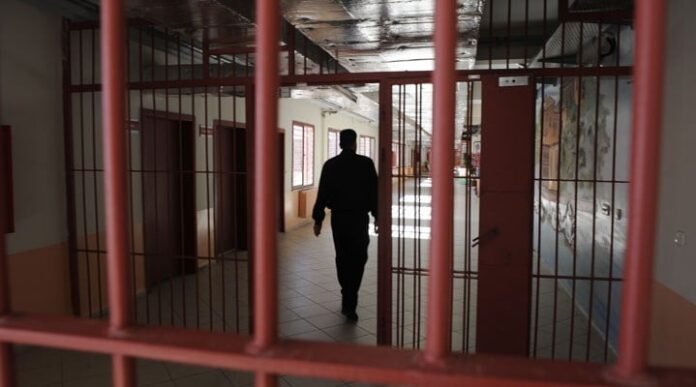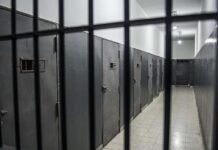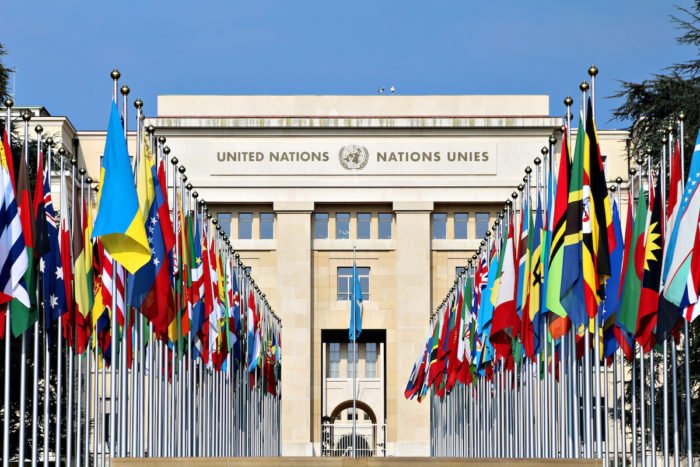Hürrem Sönmez, secretary general of the İstanbul Bar Association, has called for an end to the arbitrary denial of parole and the misuse of pretrial detention, as Turkey’s prison population has grown sevenfold under the Justice and Development Party (AKP), which came to power in 2002, Turkish Minute reported, citing the Bianet news website.
According to data compiled by the Civil Society in the Penal System Association (CISST), Turkey’s 402 prisons, with an official capacity of 304,964, now hold 420,904 inmates, a 138 percent occupancy rate. Of these 357,646 have been convicted and 63,258 are in pretrial detention. Among the inmates are 19,290 women, 4,561 minors including 187 females and 14,276 foreign nationals.
There are 6,543 inmates aged 65 and older in Turkey’s prisons, while 434 children aged 0 to 3 and 388 aged 4 to 6 are also growing up behind bars with their mothers, the data show.
The total number of inmates has risen by 0.4 percent in the past month and 4.4 percent over the last six months. Sönmez linked the increase to the widespread use of pretrial detention as punishment and to the arbitrary decisions of administrative boards that keep prisoners eligible for parole behind bars, practices she said were directly related to the AKP government’s policies.
“Treating statements critical of the government, which should be regarded as an exercise of freedom of expression, as criminal offenses and keeping people in pretrial detention for such acts, affects prison capacity,” she said.
Sönmez said another reason for overcrowding is that courts, which should interpret the law for the benefit of the suspect, often rule for detention instead. “In our legal system, pretrial detention is the exception; freedom and trial without detention are the rule. But in Turkey, this has been reversed in recent years,” she added.
She said overcrowding has led to growing rights violations, including restricted visiting hours due to staff shortages and limited access to lawyers because of inadequate facilities.
Sönmez urged the government to “end arbitrary detentions, ensure the proper implementation of parole laws and stop denying release to eligible inmates.” She said pretrial detention should serve as a precautionary measure rather than punishment, adding that prisoners’ physical and mental health are the state’s responsibility under both domestic and international law.
At least 68 inmates died by suicide in 2024, according to Justice Ministry data released in September in response to a question from Ömer Faruk Gergerlioğlu, a human rights advocate and lawmaker from the pro-Kurdish Peoples’ Equality and Democracy Party (DEM Party). Systemic problems in prisons — including limited access to healthcare, overcrowded wards, “well-type” prison designs and the use of strip searches — are worsening inmates’ physical and mental health, according to Gergerlioğlu.
The well-type prison is a particular model of high-security prison in Turkey characterized by extremely restrictive architecture and rules.
Turkey’s 2025 budget allocates 18.5 billion Turkish lira ($440 million) for prison expenses, a 30 percent increase from 14.2 billion lira ($338 million) in 2024. The Ministry of Justice employs 63,214 people in the prison system.
To address overcrowding, the government plans to build 11 new prisons by 2027 at a projected cost of 23.5 billion lira ($559 million). The 2025 budget includes 1.2 billion lira ($28 million) for construction.
The current prison population reflects ongoing arrests over protests against the jailing of İstanbul Mayor Ekrem İmamoğlu, Turkish President Recep Tayyip Erdoğan’s main political rival, as well as an ongoing crackdown on the faith-based Gülen movement, and people associated with the Kurdish political struggle for recognition.
Turkish President Recep Tayyip Erdoğan has been targeting followers of the Gülen movement, inspired by the late Muslim cleric Fethullah Gülen, since corruption investigations in December 2013 implicated him as well as some members of his family and inner circle.
Dismissing the investigations as a Gülenist coup and a conspiracy against his government, Erdoğan began to target the movement’s members. He designated the movement as a terrorist organization in May 2016 and intensified the crackdown on it following an abortive putsch in July of the same year that he accused Gülen of masterminding. The movement strongly denies involvement in the coup attempt or any terrorist activity.















